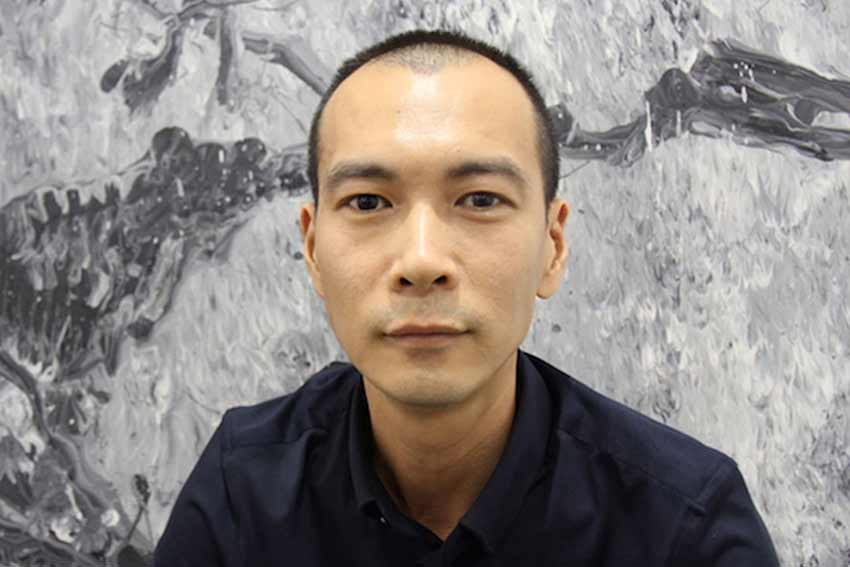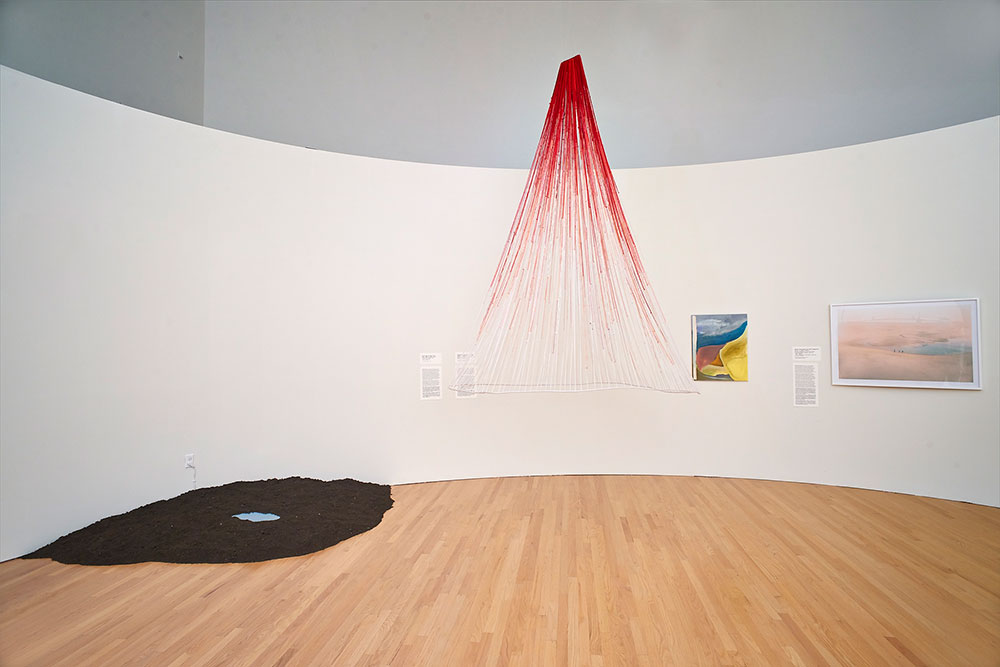Zheng Guogu was born in 1970 in Yangjiang, Guangdong Province, China, where he currently lives and works. He utilizes a wide range of mediums—including performance, photography, painting, sculpture, and embroidery—to resolve the frontier between art and everyday life. He is particularly interested in the influence of consumer culture on Chinese traditions. Inspired by the members of the Long Tail Elephant Group (a group of installation artists whose art examines and challenges the rapid changes taking place in Guangzhou) to explore more experimental, cooperative projects, he formed the Yangjiang Calligraphy Group in 2002. The group produces work that responds to the local environment, expanding the parameters of contemporary art beyond galleries and museums and using the city itself as subject, site, and material for their interactive installations. Although his work deals with familiar themes of consumerism and urban transformation, it also reflects his interest in Buddhism, as he offers as well a glimpse of the constant, unchanging, steady pace of life in his hometown of Yangjiang.
Zheng has exhibited widely in both group and solo exhibitions, including at the Guangdong Times Museum, Guangzhou, China (2013), the Guangdong Museum of Art, Guangzhou (2012), the Minsheng Art Museum, Shanghai (2010), Ullens Center for Contemporary Art, Beijing (2009 and 2008), the Biennale de Lyon, France (2009), the Guangzhou Triennial (2008 and 2005), Documenta 12, Kassel, Germany (2007), Tate Modern, Liverpool, England (2007), the Mori Art Museum, Tokyo (2005), the International Center of Photography, New York (2005), the San Diego Museum of Art (2004), and the 50th Venice Biennale (2003), among others. In 2006, Zheng received the Chinese Contemporary Art Award.



